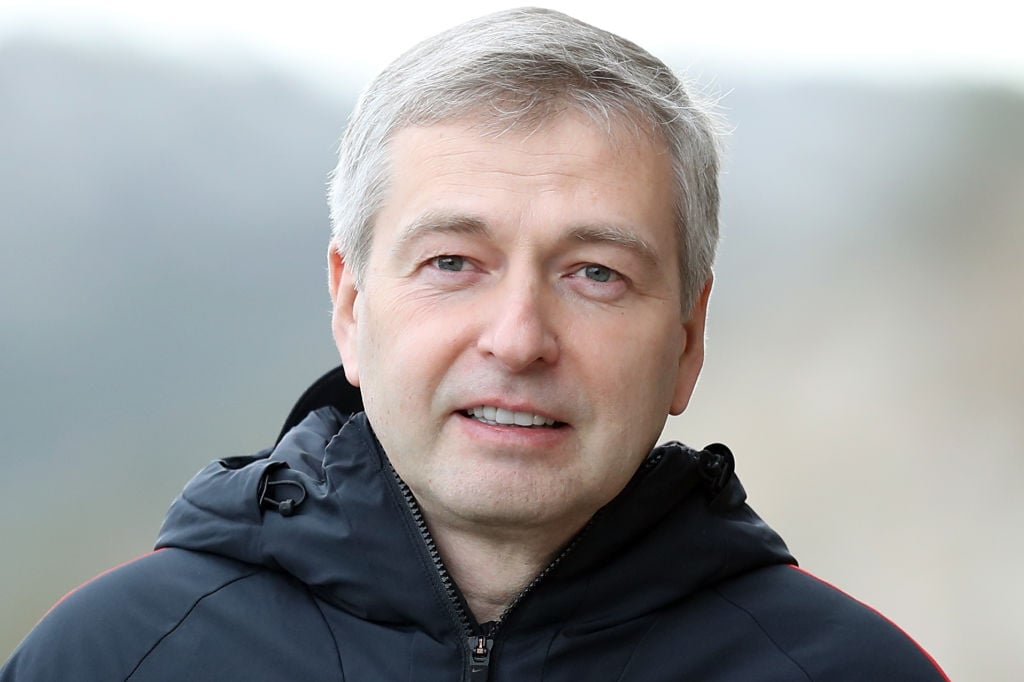
Just over a year after Monaco’s justice minister resigned following evidence of bias in a multibillion-dollar art fraud case, the alleged source of the undue influence, Russian billionaire Dmitry Rybolovlev, has now been officially charged in connection with a corruption investigation.
According to Bloomberg, Rybolovlev, who was questioned by Monagesque authorities last week, was charged on November 7, as confirmed by prosecutor Sylvie Petit-Leclair. However, she was unable to specify the exact charges. Rybolovlev and others charged in the investigation were released after being detained overnight for questioning, Bloomberg reported. The Ministry of Justice in Monaco did not respond to artnet News’s emails.
This past weekend,Dmitry Chechin, a spokesman for Rybolovlev released a statement saying: “Dmitry Rybolovlev is actually in Moscow. He was neither released on bail nor any travel restriction order has been issued in his respect. Mr. Rybolovlev is subject to judicial control: he is not restricted from leaving Monaco and not limited is his movements.”
According to a statement sent to artnet News from Rybolovlev’s lawyers, Hervé Temime and Thomas Giaccardi, Rybolovlev “is only restricted from communicating with the persons concerned by the proceedings. . .We do insist on the fact that at this stage Mr. Rybolovlev is presumed innocent.”
According to a report in Les Journal des Arts, a total of nine people have been charged with “trading in passive influence and violation of the secrecy of the investigation.” The report says that, in addition to Rybolovlev, this includes three police officers. Christophe Haget, head of the judicial police, and his deputy, Patrick Fusari, are still in office, unlike the former director of public security, Regis Asso, who retired. Also implicated were Rybolovlev’s lawyer Tetiana Bersheda; the former justice minister, Philippe Narmino; and Narmino’s wife and son.
The current charges against Rybolovlev and others stem from Monaco authorities’ handling of a high-profile dispute between the Russian art collector and his former advisor and art dealer Yves Bouvier, former owner of several freeports. Bouvier helped broker sales of art to Rybolovlev worth an estimated $2 billion, including pieces by Picasso, Modigliani, and even the famous Leonardo da Vinci painting of Salvator Mundi that went on to re-sell at auction for $450 million at Christie’s last fall.
In early 2015, Rybolovlev alleged that Bouvier had fraudulently overcharged him by some $1 billion on the deals by inflating the prices for which he obtained them from the sellers. The first public evidence of the dispute came in early 2015 when Bouvier traveled to Monaco for what he thought was to be a meeting with Rybolovlev. He was surprised to find instead that the billionaire had lodged a criminal complaint against him. Bouvier was arrested and later released on €10 million bail. Since then, Rybolovlev has initiated various actions against or related to Bouvier in Switzerland, Singapore, London, and New York.
But it is the initial event in Monaco now drawing international scrutiny. Last year, amid what the French press has dubbed “Monaco-gate,” Le Monde published text messages purporting to show that Narmino worked on behalf of Rybolovlev to influence the case. The texts showed what Le Monde described as “a vast influence-peddling scandal at the heart of Monaco institutions.” Hours after the story was published, Narmino decided to take what he called “early retirement.” The Ministry of Justice confirmed the decision to artnet News at the time and provided copies of his statement.
According to reports, there were hundreds of text messages exchanged between Rybolovlev, Bersheda, and Narmino. They included details about an all-expenses-paid ski trip for Narmino and his wife at Rybolovlev’s Swiss chalet in Gstaad, as well as a private helicopter ride and other expensive gifts. The messages also reportedly suggested Bersheda was in close contact with the Monaco police about a plan to arrest Bouvier after “luring” him to Monaco.
Bouvier’s attorney Ron Soffer told artnet News via telephone: “I have no comment.”